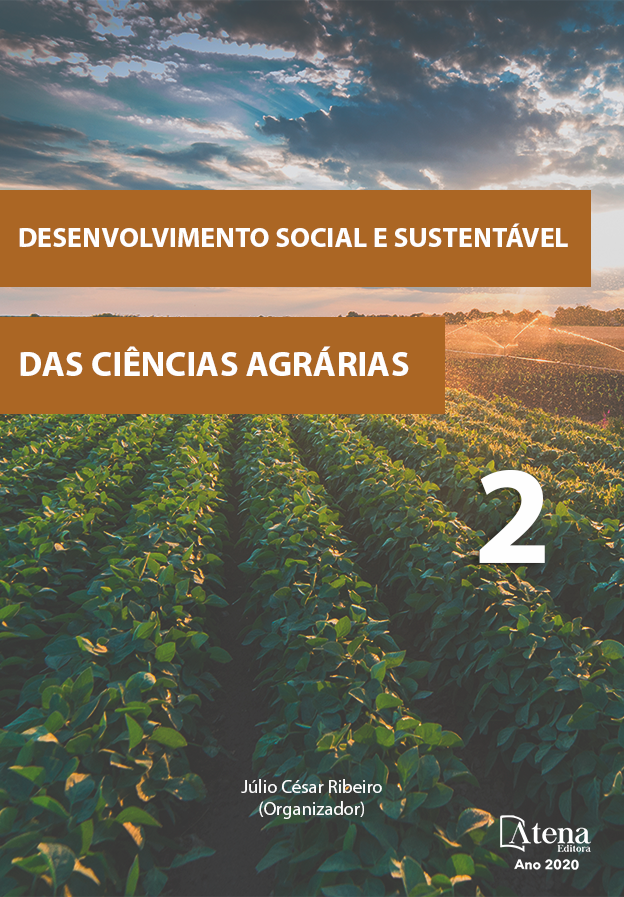
PRODUÇÃO ORGÂNICA DE MUDAS DE PIMENTA: USO DE DIFERENTES SUBSTRATOS E CULTIVARES
A agricultura orgânica é um sistema de produção que têm como base os princípios agroecológicos que contemplam o uso sustentável e responsável do solo, da água, do ar e dos demais recursos naturais, de modo a reduzir as formas de contaminação e desperdício desses elementos, contribuindo para o desenvolvimento sustentável. Uma característica importante dos sistemas orgânicos é que utilizam materiais da própria propriedade para a produção agrícola, um exemplo disso é o uso de substratos orgânicos, usados principalmente para a germinação, assim como para o ciclo completo dos vegetais. Este trabalho teve o objetivo de avaliar o desenvolvimento inicial de 4 variedades de pimentas em 06 diferentes tipos de substratos orgânicos. A pesquisa foi realizada no período 19 de maio a 30 de junho de 2017 no Instituto Federal do Amazonas, Campus Itacoatiara, em ambiente de viveiro coberto com tela de sombreamento a 50%. Após análise dos resultados obteve-se uma germinação média de 65,19%. Dentre as variedades testadas a que teve maior porcentagem de crescimento em relação a germinação foi a Tequila com 78,82%. Após quinze dias de avaliação, obteve-se uma média da altura final de 1,75cm. Os tratamentos que obtiveram maior altura foram T2 e T3 com respectivamente 2,05 e 2,02 cm. O tamanho médio das raízes foi de 3,36cm. O T2 (Terra preta+paú) foi o tratamento que obteve maior tamanho de raiz com 5,64cm. Verificamos que o Tratamento Terra preta + cinza, ou seja, o T4, teve pior desempenho destacado nas cultivares Tequila e Vulcão, onde ao longo das avaliações ele esteve sempre abaixo dos demais tratamentos. É possível produzir mudas de pimenteiras com substratos orgânicos de baixo custo de forma eficiente.
PRODUÇÃO ORGÂNICA DE MUDAS DE PIMENTA: USO DE DIFERENTES SUBSTRATOS E CULTIVARES
-
DOI: 10.22533/at.ed.7192009108
-
Palavras-chave: Adubo orgânico; Germinação de sementes; Variedades de pimentas.
-
Keywords: Organic fertilizer; Seed germination; Varieties of peppers.
-
Abstract:
Organic agriculture is a production system that is based on agroecological principles that contemplate the sustainable and responsible use of soil, water, air and other natural resources, in order to reduce the forms of contamination and waste of these elements, contributing to sustainable development. An important feature of organic systems is that they use materials from the property itself for agricultural production, an example of which is the use of organic substrates, used mainly for germination, as well as for the complete cycle of vegetables. This work aimed to evaluate the initial development of 4 varieties of peppers in 06 different types of organic substrates. The research was carried out from May 19 to June 30, 2017 at the Federal Institute of Amazonas, Campus Itacoatiara, in a nursery environment covered with 50% shade screen. After analyzing the results, an average germination of 65.19% was obtained. Among the varieties tested, the one with the highest percentage of growth in relation to germination was Tequila with 78.82%. After fifteen days of evaluation, an average final height of 1.75 cm was obtained. The treatments that obtained the highest height were T2 and T3 with 2.05 and 2.02 cm, respectively. The average size of the roots was 3.36 cm. T2 (Anthropogenic Dark Earths (terra preta de Índio) + paú) was the treatment that obtained the largest root size with 5.64 cm. We found that the Anthropogenic Dark Earths + gray treatment, that is, T4, had the worst performance in the cultivars Tequila and Vulcão, where throughout the evaluations it was always below the other treatments. It is possible to produce pepper seedlings with low cost organic substrates efficiently.
-
Número de páginas: 9
- Rafael Augusto Ferraz
- Rondon Tatsuta Yamane Baptista de Souza
- Silvio Gonzaga Filho
- Andrey Luis Bruyns de Sousa


